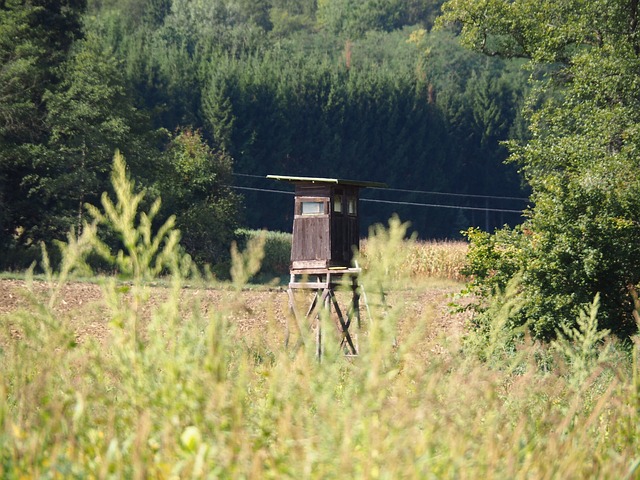With this being the opening weekend of dove season and with deer season coming up soon here in Texas, I’ve gotten a lot of questions and interview requests about hunting leases. We’ve got a variety of resources–many free–that offer great information for landowners interested in allowing others to hunt on their land. I thought it might be useful to write a post just outlining and providing links to those various resources in one place.
With regard to the two handbooks mentioned below, I’ve linked the free PDF versions, but if you would like to order a hard copy, we have those available for sale by calling Lacrecia at 806-677-5600.

Image by Ratfink1973 from Pixabay
First off, landowners should strongly consider having a written hunting lease in place with anyone who will be hunting on the property. This lease does not have to be overly complex or long, but should set forth the understanding of the parties about the rights and responsibilities of the hunter. Check out our Ranchers Agricultural Leasing Handbook with a checklist and sample language for a hunting lease to help you get started. For a great discussion about why you need a hunting lease and what to include, check out this podcast episode I did with Trace Blair, a hunting guide-turned-lawyer in Jourdanton.
Second, I always suggest that landowners consider having two written release documents signed as well. The first is a standard waiver of liability. This document is essentially an agreement by the hunter that he or she will not hold the landowner liable for negligence. The law surrounding these documents can be tricky, so please consider using an attorney to draft a valid waiver. The good news is that once you have a good wavier form, you can likely use it year after year unless there is a major change in the law the requires amendments to the form. To read more about the law regarding liability waivers, we have a full chapter on that topic in our Ranchers Agricultural Leasing Handbook.
Additionally, landowners may wish to have hunters sign the Texas Agritourism Act waiver form. The language is provided by statute, and you may read more about that here. Under the Texas Agritourism Act, landowners can choose to either hang up a sign or obtain the Texas Agritourism Act waiver. Not surprisingly, as a lawyer, I think there are benefits to both! The one place I really recommend having the Texas Agritourism Act waiver signed is if you are having minor children hunt on the property. In that situation, the statute provides that the Agritourism Act waiver may be signed by the child’s parent, guardian, or managing conservator. To learn more, check out our Landowner Liability Chapter of our Owning Your Piece of Texas Handbook.
Third, there are two limited liability statutes that offer protections to landowners if a person is injured on their land while doing a recreational activity, including hunting. Landowners should take the time to understand the requirements of both the Texas Recreational Use Statute and the Texas Agritourism Act, and take the steps needed to ensure each apply and are available defenses in the event an injury occurs. Again, there is a detailed discussion of each of these statutes and a breakdown of each of the individual requirements in both the Ranchers Agricultural Leasing Handbook and the Owning Your Piece of Texas Handbook. We also have a podcast episode looking at the Texas Landowner Liability Statutes featuring Trace Blair. (Do note the section on the Farm Animal Liability Act has not been updated to reflect the changes that recently occurred September 1. To learn about those changes, click here.)
Fourth, landowners who are leasing their land for something of value in return (such as money) are required to obtain a Hunting Lease License from Texas Parks and Wildlife. This must be secured for the landowner, and is different than the hunting license that hunters are required to have. To learn more, click here.
Finally, this is more practical advice than legal advice, but consider who you allow to hunt on your land. When people are flashing money around, it may be tempting to cash that check and hope for the best! But really thinking about the type of hunter you’d like to have on your property, both from a wildlife management philosophy standpoint and a safety standpoint is important.
For those of you who may be interested in a more in depth discussion of these topics or other agricultural law issues, be sure to take a look at our two online course options. We offer the Online Ranchers Leasing Workshop, which is a three-hour course focused on grazing and hunting leases, with an hour section on landowner liability. We also have an Online Owning Your Piece of Texas course, which is an 8.5 hour overview of key laws for landowners, including a section on agricultural leases and another on landowner liability. If you prefer live programs, we are working on getting some scheduled around the state and you can see those dates and locations here.











